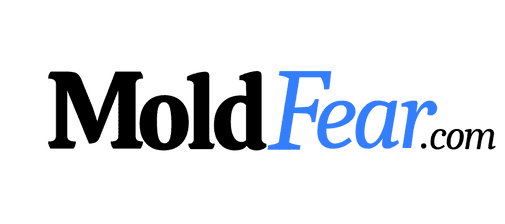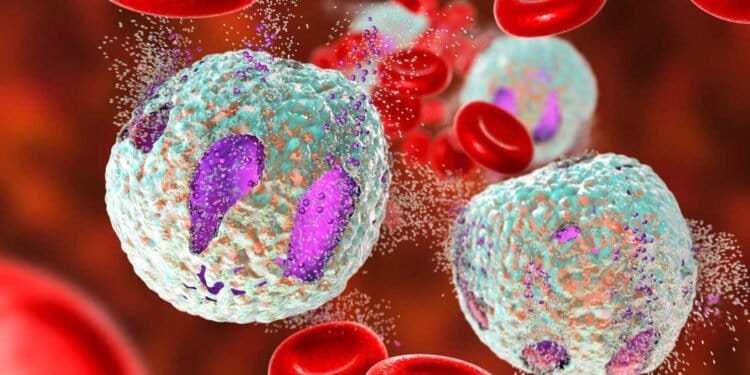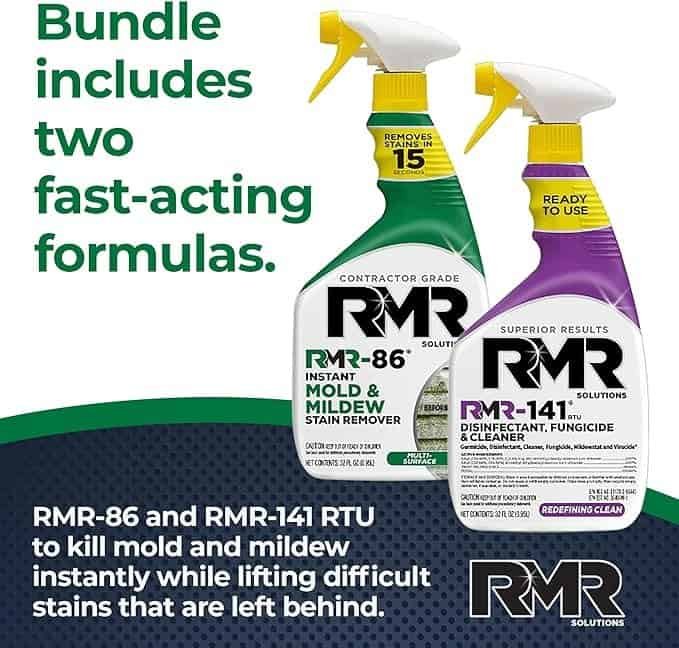Mold is a common problem in many households and can have a significant impact on the immune system. Exposure to mold can lead to a range of health issues, including respiratory problems, allergies, and even chronic illness. While it is impossible to completely eliminate mold from our environment, there are steps that can be taken to reduce the immune system burden and promote overall health.

Understanding the effects of mold on the immune system is the first step in reducing exposure. Mold spores can trigger an immune response, leading to inflammation and other health issues. Identifying mold in your environment and taking immediate steps to reduce exposure can help to minimize the impact on the immune system. Cleaning and mold remediation strategies, as well as dietary changes and supplements, can also support immune function and promote long-term health.
Key Takeaways
- Mold exposure can have a significant impact on the immune system, leading to a range of health issues.
- Identifying mold in your environment and taking immediate steps to reduce exposure can help to minimize the impact on the immune system.
- Cleaning and mold remediation strategies, dietary changes, supplements, and lifestyle adjustments can all support immune function and promote long-term health.
Understanding Mold and Its Effects on the Immune System
Mold is a type of fungus that grows in damp and humid environments. It can be found in various places such as bathrooms, kitchens, and basements. When mold spores are inhaled, they can cause a range of health problems, including allergic reactions and respiratory issues.
Mold can also have a significant impact on the immune system. When the body is exposed to mold, it triggers an immune response that can lead to inflammation and other health issues. This immune response can put a burden on the immune system, making it more difficult for the body to fight off other infections.
People with weakened immune systems, such as those with autoimmune diseases or undergoing chemotherapy, are particularly susceptible to the effects of mold exposure. They may experience more severe symptoms and have a harder time recovering from mold-related illnesses.
To reduce the burden on the immune system, it is important to take steps to prevent mold growth in the home. This can include keeping humidity levels low, fixing leaks and water damage promptly, and using a dehumidifier in damp areas.
In addition, there are various natural remedies and supplements that can help support the immune system and reduce inflammation caused by mold exposure. These include vitamin C, probiotics, and herbs such as turmeric and ginger.
By understanding the effects of mold on the immune system and taking steps to prevent exposure, individuals can reduce their risk of developing mold-related health problems and support overall immune system health.
Identifying Mold in Your Environment

Mold can grow in almost any environment where there is moisture, warmth, and organic matter. It can be found in homes, workplaces, schools, and other indoor environments. Identifying mold in your environment is the first step in reducing your immune system burden.
Common Signs of Mold Presence
There are several common signs of mold presence that you can look out for in your environment. These include:
- Visible mold growth: This can appear as fuzzy, discolored patches on walls, ceilings, floors, and other surfaces.
- Musty odor: Mold produces a distinct musty odor that can be easily detected in poorly ventilated areas.
- Water damage: Any area that has experienced water damage, such as leaks, floods, or high humidity, is at risk of mold growth.
- Allergic reactions: If you or someone in your household experiences allergic reactions such as sneezing, coughing, or skin irritation, it could be a sign of mold presence.
Professional Mold Assessment
If you suspect mold presence in your environment, it is recommended to seek a professional mold assessment. A professional can conduct a thorough inspection of your home or workplace and identify any hidden mold growth that may not be visible to the naked eye. They can also provide recommendations for remediation and prevention of future mold growth.
In conclusion, identifying mold in your environment is crucial for reducing your immune system burden. By being aware of common signs of mold presence and seeking professional assessment when necessary, you can take steps to improve the air quality in your indoor environment.
Immediate Steps to Reduce Mold Exposure

When it comes to reducing mold exposure, immediate action is crucial. Here are some steps that can be taken to minimize the risk of mold exposure:
Ventilation and Humidity Control
Proper ventilation and humidity control are key to preventing mold growth. It is important to keep the indoor humidity level below 60%. Using exhaust fans in bathrooms and kitchens can help reduce humidity levels. Keeping windows open for a few hours a day can also improve ventilation.
Use of Air Purifiers
Air purifiers can be effective in reducing mold spores in the air. HEPA filters are recommended for capturing mold spores. It is important to regularly clean and replace filters to ensure their effectiveness.
Mold-Resistant Products
Using mold-resistant products can also help reduce mold growth. Mold-resistant paint, drywall, and insulation can be used in areas that are prone to moisture, such as bathrooms and basements. It is important to ensure that these products are installed properly and that any leaks or water damage are addressed immediately.
By taking these immediate steps to reduce mold exposure, individuals can reduce the burden on their immune system and improve their overall health.
Cleaning and Mold Remediation Strategies

Natural Cleaning Solutions
When it comes to cleaning up mold, natural solutions can be just as effective as chemical ones. Some of the most popular natural cleaning solutions include vinegar, baking soda, and hydrogen peroxide. These solutions can be used to clean surfaces such as walls, floors, and furniture.
Vinegar is a natural acid that can kill up to 82% of mold species. Mix equal parts vinegar and water in a spray bottle and spray the solution on the affected area. Let it sit for a few minutes before wiping it away with a damp cloth.
Baking soda is another natural solution that can be used to clean mold. Mix one-quarter tablespoon of baking soda with water to create a paste. Apply the paste to the affected area and let it sit for a few minutes before wiping it away with a damp cloth.
Hydrogen peroxide is a natural antifungal and antibacterial solution that can be used to clean mold. Mix equal parts hydrogen peroxide and water in a spray bottle and spray the solution on the affected area. Let it sit for a few minutes before wiping it away with a damp cloth.
When to Hire Professionals
While natural cleaning solutions can be effective, there are times when it’s best to hire professionals for mold remediation. If you have a large area of mold growth, or if the mold is in a hard-to-reach area such as inside walls or ductwork, it’s best to call in the experts.
Professional mold remediation companies have the equipment and expertise to safely and effectively remove mold from your home. They can also identify the source of the mold and take steps to prevent it from returning.
It’s important to choose a reputable mold remediation company that is licensed and insured. Ask for references and check online reviews before making a decision. Mold remediation can be expensive, but it’s worth the investment to protect your health and the value of your home.
Dietary Changes to Support Immune Function
Making dietary changes can be an effective way to support immune function and reduce the burden on the immune system. Here are some tips to consider:
Anti-inflammatory Foods
Inflammation is a natural response of the immune system to injury or infection. However, chronic inflammation can lead to a weakened immune system and other health problems. Including anti-inflammatory foods in your diet can help reduce inflammation and support immune function.
Some anti-inflammatory foods to consider include:
- Fatty fish like salmon, tuna, and sardines, which are high in omega-3 fatty acids
- Berries like blueberries, strawberries, and raspberries, which are rich in antioxidants
- Leafy greens like spinach, kale, and collard greens, which are high in vitamins and minerals
- Nuts and seeds like almonds, walnuts, and chia seeds, which are high in healthy fats and antioxidants
Probiotics and Gut Health
The gut is home to trillions of bacteria that play an important role in immune function. Eating foods that support gut health can help strengthen the immune system.
Some probiotic-rich foods to consider include:
- Yogurt, kefir, and other fermented dairy products
- Kimchi, sauerkraut, and other fermented vegetables
- Kombucha, a fermented tea that contains probiotics
In addition to probiotics, prebiotic foods can also support gut health. Prebiotics are a type of fiber that feed the beneficial bacteria in the gut. Some prebiotic-rich foods to consider include:
- Garlic, onions, and leeks
- Bananas, apples, and berries
- Whole grains like oats and barley
By making these dietary changes, individuals can support their immune system and reduce the burden on their immune function.
Supplements and Natural Remedies
Antioxidants and Detoxification Aids
Antioxidants can help reduce the burden on the immune system caused by mold exposure. Vitamin C, Vitamin E, and glutathione are all powerful antioxidants that can help support the body’s natural detoxification processes. Vitamin C can be found in citrus fruits, kiwi, and strawberries, while Vitamin E is found in nuts, seeds, and leafy greens. Glutathione is produced naturally in the body but can also be found in supplement form.
Other detoxification aids include milk thistle, which can help support liver function, and activated charcoal, which can bind to toxins in the digestive tract and help eliminate them from the body. It is important to note that while these supplements can be helpful, they should not be relied upon as the sole means of detoxification.
Herbal Supplements
Certain herbs can also be beneficial for reducing the immune system burden caused by mold exposure. Adaptogenic herbs like ashwagandha and holy basil can help support the body’s stress response, while immune-boosting herbs like echinacea and astragalus can help strengthen the immune system.
Other herbs like ginger and turmeric have anti-inflammatory properties that can help reduce inflammation caused by mold exposure. These herbs can be consumed as teas, added to meals as spices, or taken in supplement form.
It is important to note that while herbal supplements can be helpful, they should be used with caution and under the guidance of a healthcare professional. Some herbs can interact with medications or have side effects, and dosages should be carefully monitored.
Lifestyle Adjustments for Long-Term Health
Stress Reduction Techniques
Stress can have a significant impact on the immune system and can exacerbate the effects of mold exposure. Therefore, it is essential to incorporate stress-reducing techniques into one’s daily routine. Some effective techniques include:
- Meditation: Practicing meditation for a few minutes every day can help reduce stress and improve overall well-being.
- Deep Breathing: Deep breathing exercises can help reduce stress and improve lung function, which is particularly important for those with mold-related respiratory issues.
- Yoga: Practicing yoga can help reduce stress and improve flexibility, strength, and balance.
Regular Exercise
Regular exercise can help improve overall health and reduce the burden on the immune system. It is important to choose exercises that are appropriate for one’s fitness level and health status. Some examples of exercises that can be beneficial include:
- Walking: Walking is an easy and low-impact exercise that can be done almost anywhere. It can help improve cardiovascular health and reduce stress.
- Swimming: Swimming is a great low-impact exercise that can help improve overall fitness and lung function.
- Strength Training: Strength training can help improve muscle tone and bone density, which is particularly important for those with mold-related health issues.
By incorporating stress-reducing techniques and regular exercise into one’s daily routine, individuals can help reduce the burden on their immune system and improve their overall health and well-being.
Monitoring and Maintaining a Mold-Free Environment
Maintaining a mold-free environment is crucial for reducing the immune system burden caused by mold exposure. Here are some tips for monitoring and maintaining a mold-free environment:
-
Regularly inspect the building for any signs of water damage or leaks. This includes checking the roof, walls, ceilings, and floors. Any areas that are damp or have visible mold growth should be addressed immediately.
-
Keep humidity levels below 50%. High humidity provides the perfect environment for mold to grow. Use dehumidifiers in damp areas such as basements and bathrooms to reduce humidity levels.
-
Ensure proper ventilation in all areas of the building. This includes using exhaust fans in bathrooms and kitchens and opening windows to allow for air circulation.
-
Use mold-resistant building materials when renovating or building. This includes mold-resistant drywall, paint, and insulation.
-
Regularly clean and maintain HVAC systems. This includes changing air filters regularly and having the system inspected and cleaned by a professional.
By following these tips, individuals can reduce the risk of mold exposure and maintain a healthy living environment.
Frequently Asked Questions
What dietary changes can support the body in detoxifying from mold exposure?
A diet rich in antioxidants, fiber, and protein can help support the body’s natural detoxification process. It is recommended to incorporate foods such as leafy greens, berries, cruciferous vegetables, garlic, turmeric, and ginger. Drinking plenty of water and avoiding processed foods, sugar, and alcohol can also aid in detoxification.
What supplements are recommended for assisting with mold detoxification?
Supplements such as activated charcoal, chlorella, spirulina, milk thistle, and glutathione can help support the body in eliminating mold toxins. It is important to consult with a healthcare practitioner before beginning any supplement regimen.
How can you strengthen your immune system after being exposed to mold?
Consuming a nutrient-dense diet, getting adequate sleep, managing stress, and incorporating regular exercise can all help strengthen the immune system. Additionally, supplements such as vitamin C, vitamin D, and probiotics can also support immune function.
What are effective natural remedies for eliminating mold toxins from the body?
Natural remedies such as infrared saunas, dry brushing, and epsom salt baths can aid in the elimination of mold toxins. It is important to note that these remedies should be used in conjunction with a comprehensive mold detoxification plan.
How can you reduce the inflammatory response associated with mold toxicity?
Incorporating anti-inflammatory foods such as turmeric, ginger, and omega-3 fatty acids can help reduce inflammation in the body. Additionally, supplements such as quercetin and curcumin can also aid in reducing inflammation.
What are the best practices for cleansing your environment of mold to prevent further exposure?
Cleaning and drying any areas that have been affected by mold, improving ventilation, and reducing humidity levels can all help prevent further mold exposure. It is important to address any underlying moisture issues and to seek professional help if necessary.














